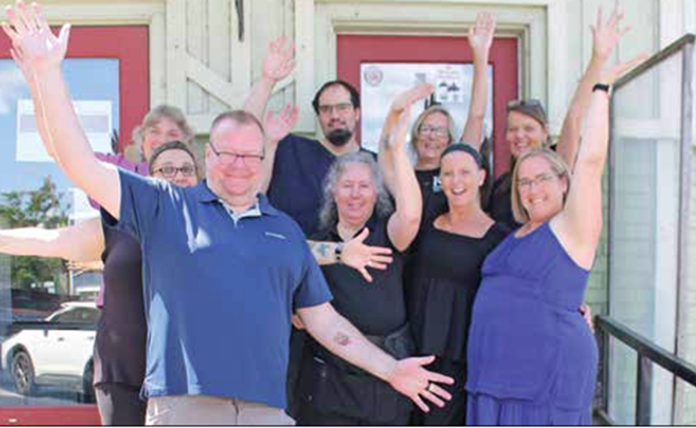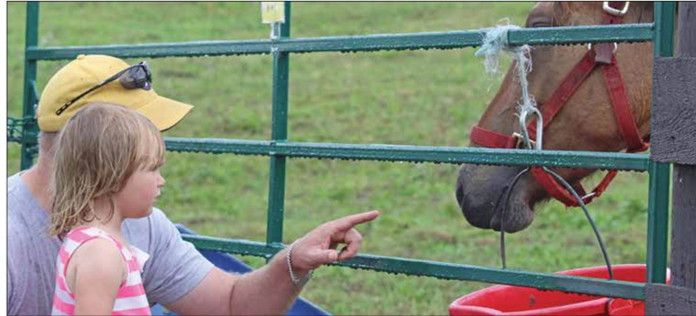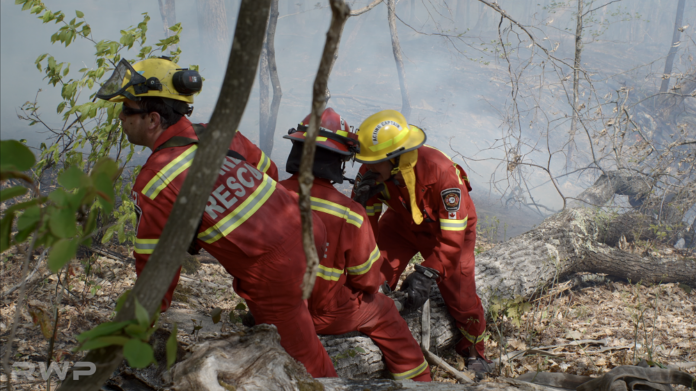As Ryan Ramsay ramps up for another season of junior hockey, preparations will be much different this fall as the popular Haliburton County Huskies coach takes on a full-time role with the Ontario Hockey League’s (OHL) Peterborough Petes.
It’s a full circle moment for the bench boss, who returns to the organization that drafted him 13th overall in the 1999 OHL Priority Selection. While he will maintain his general manager duties with the Huskies, Ramsay said, for now, he’s coached his last game with the local club – handing head coaching duties to longtime assistant Jordan Bailey.
The move was announced Aug. 8, with Ramsay starting with the Petes Aug. 26.
After spending two seasons advising the North Bay Battalion and regularly fielding calls for assistant or associate coaching roles in the OHL, Ramsay said the opportunity to return to the organization that helped launch his pro career was too good to turn down.
“There’s a lot of history there… I went down to speak with them and being in the same rink [I played in] brought a lot of things back. Seeing my name in the alumni stall, it felt like the right thing – right place, right time,” Ramsay said.
He didn’t want to uproot his family from Haliburton County, so finding a gig close enough that he could commute was important.
Ramsay said he’ll attend Huskies games this season when he can, though said his new job, focused on skills and player development, requires him to be at the rink in Peterborough a couple days per week for team practices. He’ll also attend all Petes home fixtures in 2025/26.
“The hockey person within is always looking to graduate, looking for the next opportunity… I’m really excited. This is a team that means a lot to me, my old jersey from when I was drafted hangs in my kid’s bedroom. It’s a no-brainer for me,” Ramsay said. “I’ve had some really good opportunities to move every year, but this is the one that makes sense and ticks all the boxes. It’s something really close to my heart.”
The 42-year-old has a long history with Pete’s head coach Rob Wilson, who was his bench boss at Ritten/Renon during the 2012/13 Italian Hockey League Serie A season. They’ve stayed friends over the past 12 years.
Having worked predominantly with younger prospects during his stint with the Batallion, which he resigned from this summer, Ramsay said there’s a lot of up-and-coming talent in Peterborough he’s keen develop.
The team selected Kaden McGregor with the first overall pick in the 2025 OHL draft and also boasts well-regarded defenceman Carson Cameron and forward Colin Fitzgerald, who is representing Canada in the Hlinka Gretzky Cup.
“They’ve got a bunch of really good young hockey players. I’m looking forward to going in there and teaching them some skill stuff, but also about what it’s like to be a professional hockey player, what it takes to make that step,” he said. “It’s not just Xs and Os, it’s what you do off-ice and how you present yourself. Hockey is a mindset and how you deal with everything.”
‘Always a Husky’
Ramsay said his presence will continue to be felt throughout the Huskies organization – he’s responsible for team building and will be available to assist Bailey as he gets to grips with his new responsibilities.
He doesn’t foresee the switch impacting the team’s ability to compete for a championship in 2025/26. Five players are returning from last year – goaltender Stephen Toltl, defenceman Kaiden Thatcher and forwards Chase Del Colombo, Daniel Vasic and Isaac Larmand.
Confirmed additions include 18-year-old centre Cristian Giancola, recruited from the Toronto Patriots, and rookies Connor Hollebek and Lewis Hergaarden. Thus far, the Huskies have filled two of eight olderage roster spots.
“We’re going to be competitive – I’ve been telling people I’m still involved, running things and having final say on what goes on, as a GM does. But we have a really great team behind the bench.
“Jordan has been with me for years, [assistant coach] Owen [Flood] is going into his fifth year. They know what the organization is about, so I’m really comfortable with them leading the charge. The transition will be a lot easier than if we brought someone different in. I’m confident they’ll bring us back to the playoffs and, hopefully, win a championship,” Ramsay said.











